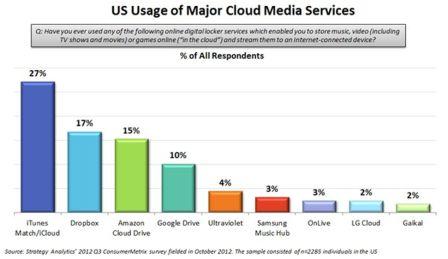Note: this is the first part of a three-part series. Click here for part 2., and here for part 3.
It’s no secret that consumer storage is floating fast up to the cloud. Google Drive, DropBox, Microsoft (News  - Alert) SkyDrive and endless Carbonite TV commercials tell us that.
- Alert) SkyDrive and endless Carbonite TV commercials tell us that.
But when it comes to business, higher level approaches are required, and that is where MSPs and vendors that sell to them come in. For an enterprise, even a teensy one, SkyDrive just doesn’t cut it.
In fact, MSP Today has been insanely busy just trying to keep pace with all the service provider storage action.
There are two main approaches to cloud storage/backup.
There is the pure cloud approach, where primary systems are backed up directly to cloud with no middleman. This is called disk to cloud (D2C) where the disk is a primary storage device, in most cases a file server running Windows Server or Linux. In fewer and fewer cases it could be UNIX.
Unfortunately, you can’t back up from a faster, local device, and you have only one tier of backup.
A more sophisticated approach has two names, disk-to-disk to cloud (D2D2C) or hybrid cloud backup. Here the primary storage device is backed up to a disk storage system on premises. Instead of the higher tier being another disk or a tape subsystem, the second tier backup is done to the cloud.
MSPs and the vendors that sell to them are aiming hybrid cloud directly at replacing tape. The argument is that tape is more prone to failure than a Three Stooges’ business plan. And it is an extraordinary hassle for IT to manage.
The competition in the space is hotter and heavier than a WWE ring. Competitors range from storage giants such as EMC (News  - Alert) to a bevy of newer, smaller and hopefully more nimble players.
- Alert) to a bevy of newer, smaller and hopefully more nimble players.
All these companies are chasing what researchers believe is a hot market. A report by MarketsandMarkets indicates that the cloud storage market will, on a CAGR basis, grow 40 percent hitting $46.8 billion by 2018.
Meanwhile, Gartner (News  - Alert) says they by next year, some one third of medium-sized shops will do disaster recovery in the cloud, up from just 1 percent two years ago.
- Alert) says they by next year, some one third of medium-sized shops will do disaster recovery in the cloud, up from just 1 percent two years ago.
Hybrid cloud storage, by definition, is a bit complex as it blends two different technologies, physical and virtual storage. That is why there has been an immense number of partnerships, and even acquisition activity.

Consumer and Media Focused Cloud Storage Mart
Acquisition Action
The most recent acquisition in the space, which happened just recently, was GFI Software buying IASO. GFI, through its MSP-focused GFI MAX line, already targets MSPS with remote management and monitoring (RMM). GFI also sold managed backup using IASO, which was a partner at the time.
Having a deep understanding of the IASO technology and a good relationship with the company, GFI went ahead and just bought the company.
MSPs can get at IASO technology in two ways. It can simply come as an extension of GFI MAX RemoteManagement where it integrates with the existing product, or offered as a stand-alone tool.
IASO, based in the Netherlands, built its software to run in a number of ways. IASO can be installed on a client’s backup server as traditional backup software, and IASO can power cloud backup services.
GFI started to work with IASO a year ago. “We have been using IASO’s technology in GFI MAX RemoteManagement for over a year and it has been a great success with our customers. Acquiring IASO’s technology provides us with a huge opportunity to expand this side of our business, target new opportunities in the MSP community and among businesses that want to reduce the technical and logistical overhead of backup and benefit from the fastest cloud based restore available,” said Walter Scott, CEO at GFI Software.
A big angle for GFI is to convince IT shops to ditch their unwieldy and unreliable tapes. “We believe strongly that best backup practice follows the Disk-to-Disk-to-Cloud (D2D2C) or hybrid approach. The unique True Delta and Local Speed Vault technologies developed by IASO enable MSPs and businesses to follow this best practice, benefit from ultra-fast online backups and remain confident that their data is secure and available at the touch of a button, when they need it,” said Scott.
Edited by
Rich Steeves
 Magna5 Ranks #39 on Channel Partners 2025 MSP 501 List07/03/2025
Magna5 Ranks #39 on Channel Partners 2025 MSP 501 List07/03/2025 CMIT Solutions Expands into Central FL with New Office in Brandon-Lakeland07/01/2025
CMIT Solutions Expands into Central FL with New Office in Brandon-Lakeland07/01/2025 NexusTek Ranked on Channel Partners 2025 MSP 501--Tech Industry's Most Prestigious List of Managed Service Providers Worldwide07/01/2025
NexusTek Ranked on Channel Partners 2025 MSP 501--Tech Industry's Most Prestigious List of Managed Service Providers Worldwide07/01/2025 Tenstorrent Acquires Blue Cheetah Analog Design07/01/2025
Tenstorrent Acquires Blue Cheetah Analog Design07/01/2025





